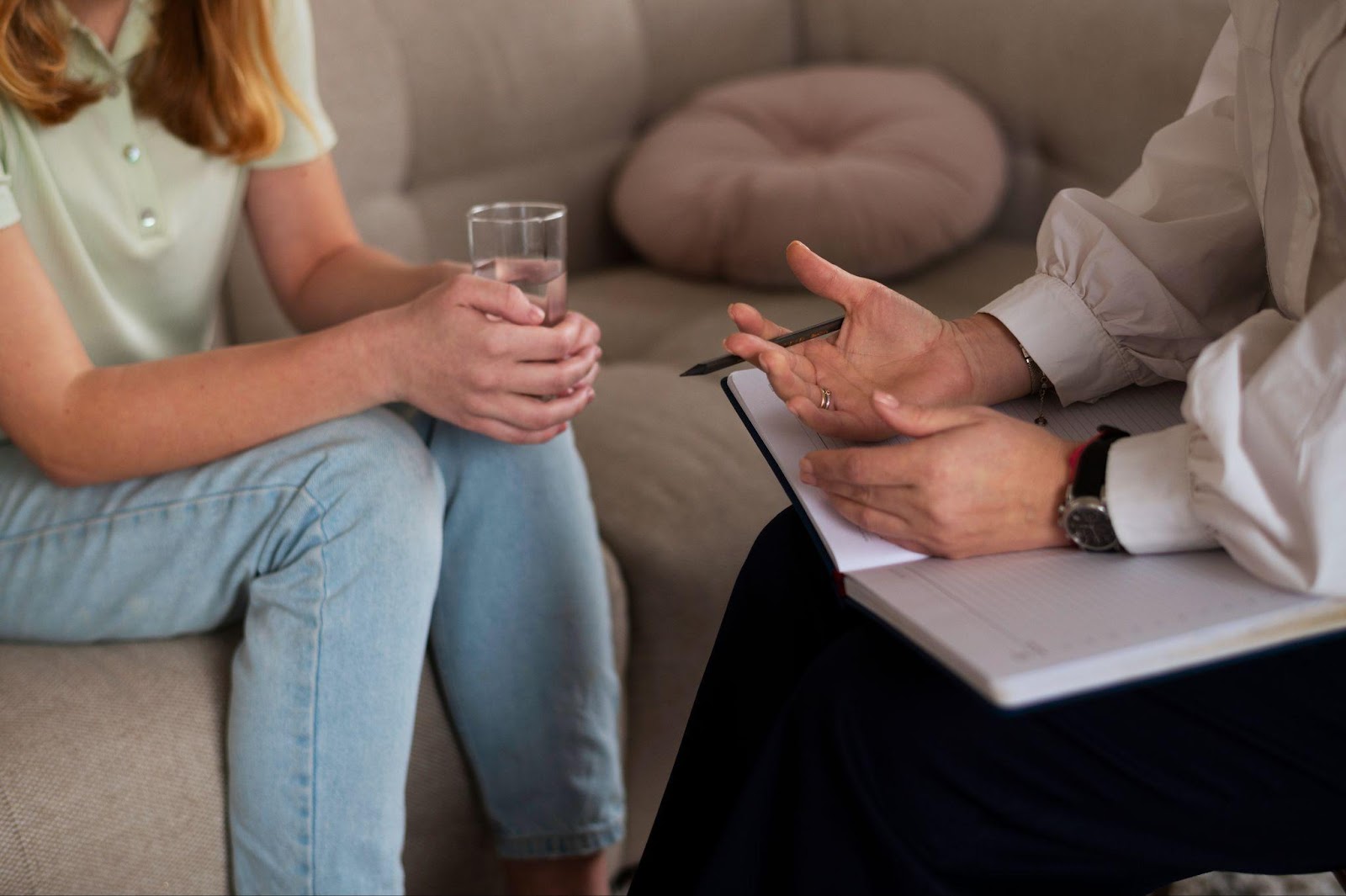
Personal injuries can have far-reaching effects beyond physical pain and limitations. The psychological impact of a sudden, traumatic event can be equally devastating and long-lasting.
Here, our Alabama personal injury attorneys will provide comprehensive information on the psychological aspects of personal injury and the support that’s available to Alabama residents.
Common Psychological Reactions to Personal Injury
In the aftermath of a personal injury, individuals often experience a range of emotional and psychological reactions:
- Shock and Disbelief;
- Anxiety and Fear;
- Anger and Frustration;
- Depression;
- Guilt or Self-Blame;
- Grief and Loss; and
- Post-Traumatic Stress.
These initial reactions are normal responses to a traumatic event. However, if they persist or intensify over time, they may develop into more serious mental health issues.
Long-Term Mental Health Consequences
For some individuals, the psychological impact of a personal injury can lead to long-term mental health challenges:
- Post-Traumatic Stress Disorder (PTSD);
- Chronic Depression;
- Generalized Anxiety Disorder;
- Adjustment Disorders;
- Substance Abuse;
- Body Image Issues; and
- Chronic Pain Syndrome.
These conditions can significantly affect an individual’s quality of life, relationships, and ability to work or engage in daily activities.
Factors Influencing Psychological Impact
The severity and duration of psychological effects can vary widely among individuals.
Several factors influence the psychological impact of a personal injury:
- Severity of the Injury;
- Pre-existing Mental Health Conditions;
- Personal Resilience and Coping Mechanisms;
- Social Support Network;
- Financial Stress;
- Legal Proceedings and Insurance Claims;
- Age and Life Stage; and
- Cultural and Religious Beliefs.
Understanding these factors can help in tailoring support and treatment plans for individuals affected by personal injuries.
Recognizing Signs of Psychological Distress
It’s crucial to identify signs of psychological distress early to ensure timely intervention. Common indicators include:
- Persistent Sadness or Hopelessness;
- Excessive Worry or Fear;
- Irritability and Mood Swings;
- Social Withdrawal;
- Sleep Disturbances;
- Changes in Appetite;
- Difficulty Concentrating;
- Intrusive Thoughts or Flashbacks;
- Physical Symptoms (e.g., headaches, digestive issues); and
- Suicidal Thoughts.
If you or someone you know is experiencing these symptoms following a personal injury, it’s important to seek professional help.
Available Support and Treatment Options in Alabama
Alabama offers various resources for individuals dealing with the psychological impact of personal injury:
Mental Health Professionals
- Psychologists;
- Psychiatrists;
- Licensed Professional Counselors; and
- Clinical Social Workers.
Treatment Approaches
- Cognitive Behavioral Therapy (CBT);
- Eye Movement Desensitization and Reprocessing (EMDR);
- Mindfulness-Based Stress Reduction;
- Group Therapy; and
- Medication Management.
Support Groups
- Trauma Survivors Network;
- Brain Injury Support Groups; and
- Chronic Pain Support Groups.
Crisis Services
- Alabama Department of Mental Health Crisis Services; and
- National Suicide Prevention Lifeline: 1-800-273-8255.
Many rehabilitation centers in Alabama offer psychological support as part of their comprehensive treatment programs.
Coping Strategies for Personal Injury Survivors
While professional help is often necessary, there are several self-help strategies that can aid in recovery:
- Establish a Daily Routine;
- Practice Relaxation Techniques;
- Engage in Physical Activity (as medically appropriate);
- Maintain Social Connections;
- Set Realistic Goals;
- Keep a Journal;
- Focus on Self-Care;
- Join Support Groups;
- Educate Yourself About Your Injury and Recovery Process; and
- Consider Mindfulness or Meditation Practices.
These strategies can provide a sense of control and help manage the psychological challenges following a personal injury.
Remember, recovery is a journey, and incorporating these coping strategies can be an important part of that process.
Legal Considerations and Mental Health
The psychological impact of a personal injury can have legal implications:
- Documenting Mental Health Symptoms: Keep detailed records of psychological symptoms and treatments.
- Compensation for Emotional Distress: In some cases, compensation may be available for psychological suffering.
- Capacity Issues: Severe psychological impacts may affect an individual’s legal capacity.
- Confidentiality: Understand how seeking mental health treatment may affect your legal case.
It’s important to consult with both legal and mental health professionals to navigate these complex issues.
Resources for Family Members and Caregivers
Supporting a loved one through the psychological aftermath of a personal injury can be challenging. Resources for family members and caregivers include:
- Family Counseling Services;
- Caregiver Support Groups;
- Respite Care Services;
- Educational Workshops on Trauma and Recovery; and
- Online Forums and Communities.
Remember, taking care of your own mental health is crucial when supporting others.
Frequently Asked Questions
Understanding the psychological impact of personal injury can raise many questions.
Here, we’ll address some of the most common concerns our clients have about mental health following a personal injury.
How Long Does It Take to Recover Psychologically From a Personal Injury?
Recovery time varies greatly depending on the individual and the nature of the injury. Some may recover within months, while others may face long-term challenges.
Can I Receive Compensation for Psychological Trauma After a Personal Injury?
In some cases, yes. Consult with a legal professional to understand your rights and options.
Will Seeking Mental Health Treatment Affect My Personal Injury Claim?
While it may be relevant to your claim, seeking necessary mental health treatment is generally viewed positively as it shows you’re taking steps to recover.
How Can I Help a Family Member Who’s Struggling After a Personal Injury?
Offer emotional support, encourage professional help, and assist with practical tasks. Consider family counseling or support groups.
Are There Any Free Mental Health Resources Available in Alabama?
Yes, Alabama offers several free or low-cost mental health services. Contact the Alabama Department of Mental Health for information.
Can PTSD Develop from Any Type of Personal Injury?
While commonly associated with severe trauma, PTSD can potentially develop from any situation perceived as threatening or traumatic.
How Do I Know If I Need Professional Help After a Personal Injury?
If symptoms persist or interfere with daily life for more than a few weeks, it’s advisable to seek professional help.
Can Children Experience Psychological Effects From Personal Injuries?
Yes, children can be significantly affected. They may require specialized support tailored to their developmental stage.
How Does Chronic Pain Relate to Mental Health After a Personal Injury?
Chronic pain and mental health are closely linked. Persistent pain can contribute to depression and anxiety, while psychological distress can exacerbate pain perception.
What Should I Do If I’m Having Suicidal Thoughts After a Personal Injury?
Seek immediate help. Contact the National Suicide Prevention Lifeline at 1-800-273-8255 or go to your nearest emergency room.
Take the Next Step Towards Recovery and Justice
Dealing with the psychological impact of a personal injury can be overwhelming, but you don’t have to face it alone. If you or a loved one are struggling with the mental health consequences of a personal injury in Alabama, professional support is available.
Contact Baxley Maniscalco today for a confidential consultation. Our experienced team can guide you through the legal aspects of your personal injury case while ensuring you receive the support and resources needed for your psychological well-being.
Let us help you on your journey to recovery, both physical and emotional.
Can't find what you're looking for? Search our site below.










